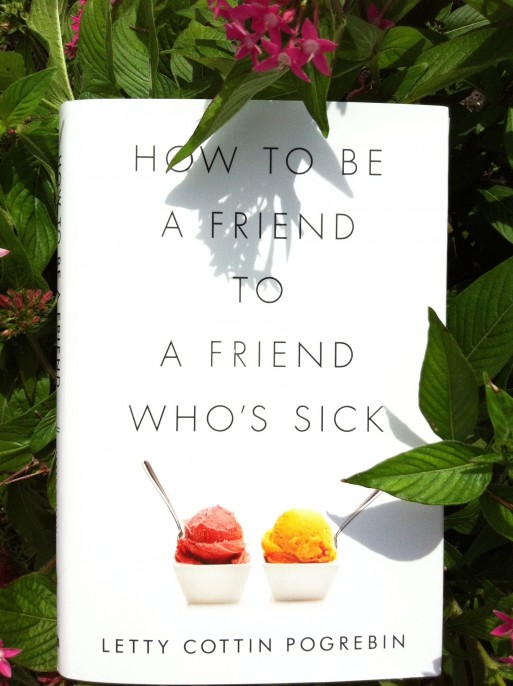When I saw the name Gloria Steinem on the City Arts and Lectures mailer (also known as the NPR interviews,) I immediately phoned in for my ticket. I had no intention of missing one of my all-time favorite female pioneers. In fact, I was so intent on seeing Gloria that when I took my seat that evening, it was a complete surprise to me she was not actually the main speaker. She had flown in all the way from England to moderate her old friend, Letty Cottin Pogrebin, about her new book on the topic of terminal illness and dying. The former co-founders of Ms Magazine (which kicked off the modern feminism movement in the 60’s) discussed the long thread of their lives as women and historical feminists who are now, along with many, opening an honest conversation about aging and confronting the reality of illness and dying. As you can imagine, what a combination those two were! Given my interests as a female business owner and long-time researcher on the topic of death, well, I was virtually spellbound the whole evening!
The occasion was Ms. Pogrebin’s introduction to her new book, “How to Be A friend To A Friend Who’s Sick.” A number of years ago, she was wrangling with the emotional aspects of having breast cancer. Having to deal with cancer was one thing, but on top of that was the emotional difficulty of breaking the news to friends and interacting with them throughout the process. Letty bared her soul to the audience about the universal inability to talk about having a terminal illness or dying. She went into detail about the hurt and pain many of her friends unknowingly caused her by avoiding the topic. She talked about a friend who would lunch with her throughout her cancer treatments and yet never once mentioned the “Big C” word. Others would exclaim how great she looked when she actually looked terrible. She confessed that the best moment was breaking her breast cancer news to a friend who responded, “Oh shit!” It was the honesty she desperately needed and the approach she recommends to everyone.
Letty had interviewed 80 people about how friends treated them during a terminal illness. Her most astounding discovery was how men are the most at a loss about what to do for a sick friend. She underlined this gender difference even when it comes to issues that are beyond our control like sickness and dying. Suddenly I realized we are at the final feminist junction — it plays into our end-of-life too.
I found that her book covers all aspects of how to be a friend to someone who is sick. Some already-understood recommendations and some not so well-explored. For example, it’s ok to fall apart in the face of such tragedy in one’s life — she determined that type A personalities fall the hardest. My only concern about the evening and the book was that some of Letty’s examples are far out of reach for the average person, like stories of her giving someone a week of delivered prepared meals, or a friend who gave a $10K gift.
It was an endearing evening of tips and advice from all angles. I was struck by Gloria’s kind humbleness in allowing Letty to bask in the limelight, as she should. Woven through the evening were delicious tidbits of their past feminist experiences. An entirely packed house hung on to their every story. This was all very timely for me, given that yesterday was my birthday and as I age, I am more and more touched by illness and death through my personal circle of friends and family.
What open and inspiring women, continuously pushing towards growth and a healthier life. I was so proud of both of them!
Other recommendations for helping a friend with a terminal illness:
- Stephen Levine’s well respected book “A Year to Live” in which a couple lived a full year as if it were their last.
- A cookbook “One Bite at a Time” on what to cook for those who have cancer or are terminally ill.
- An oncologist shares his thoughts on coping with a terminal condition and dying “a good death.”

 My Evening with Gloria Steinem and Letty Cottin Pogrebin – Who Would Have Thought We’d Be at This Feminist Junction
My Evening with Gloria Steinem and Letty Cottin Pogrebin – Who Would Have Thought We’d Be at This Feminist Junction





 John Mulaney’s “Funeral Planning” on Netflix: No Real Plan
John Mulaney’s “Funeral Planning” on Netflix: No Real Plan

 Composting Bodies Is Now Legal in a Dozen States
Composting Bodies Is Now Legal in a Dozen States














